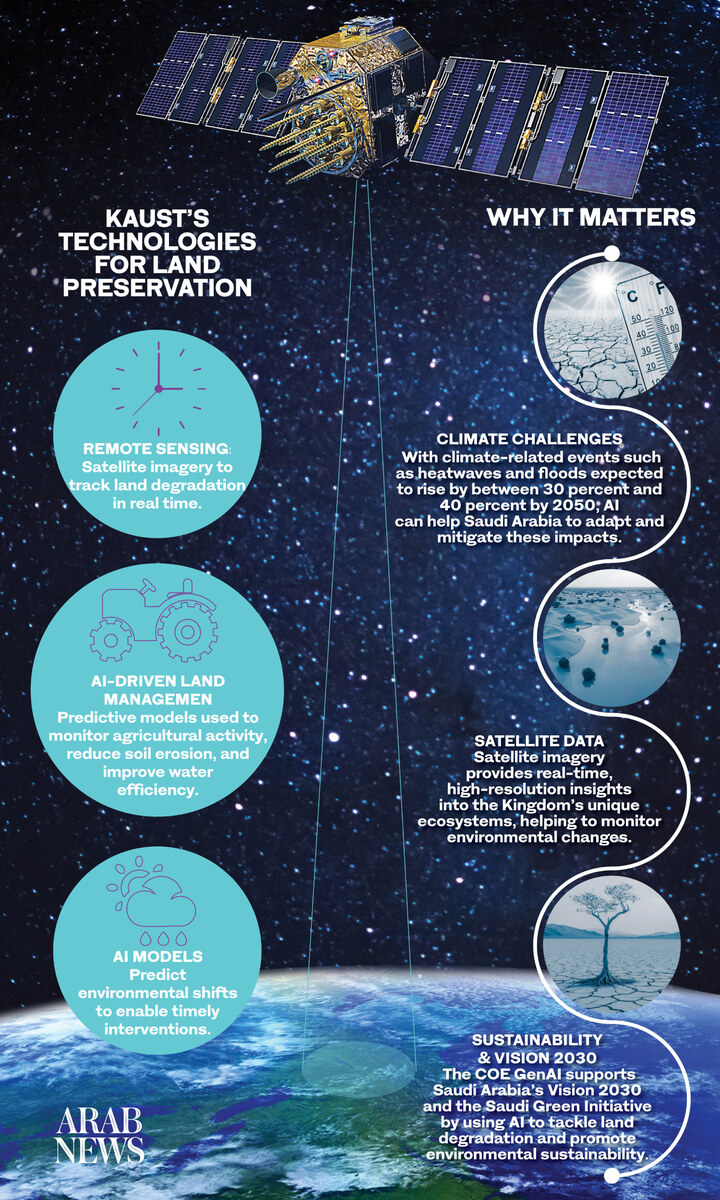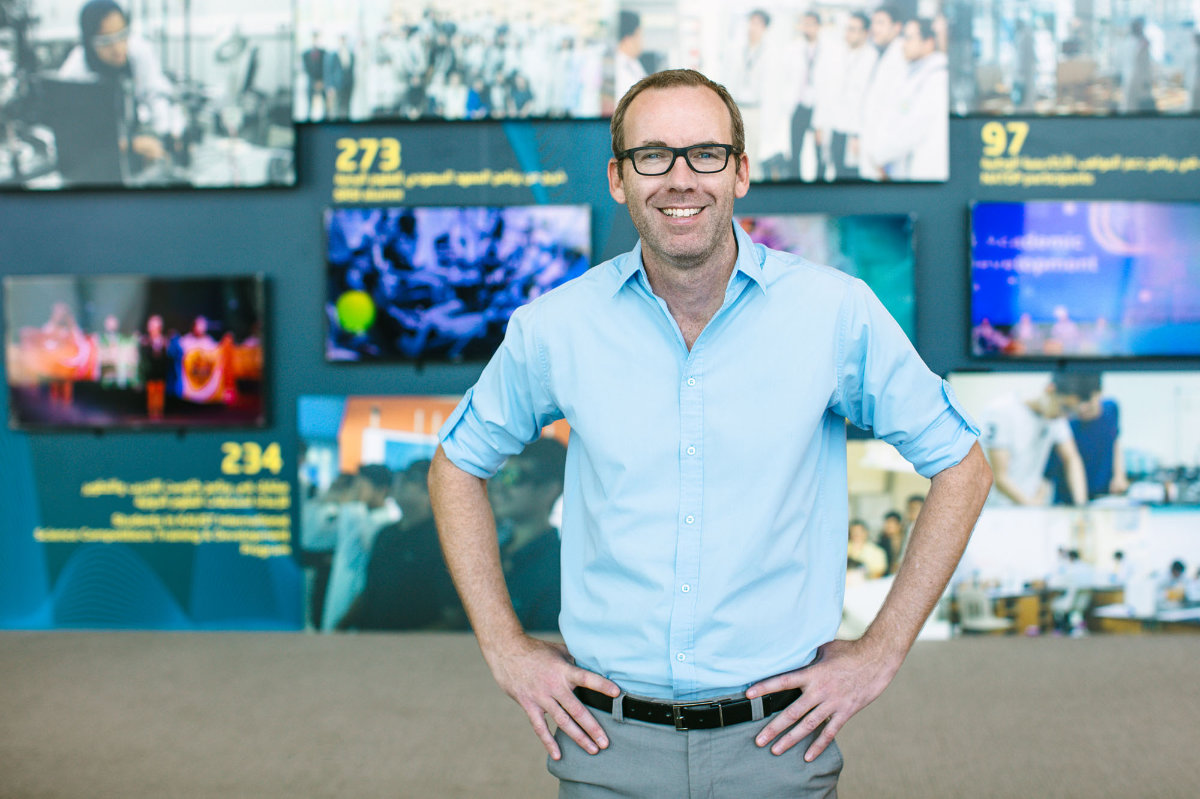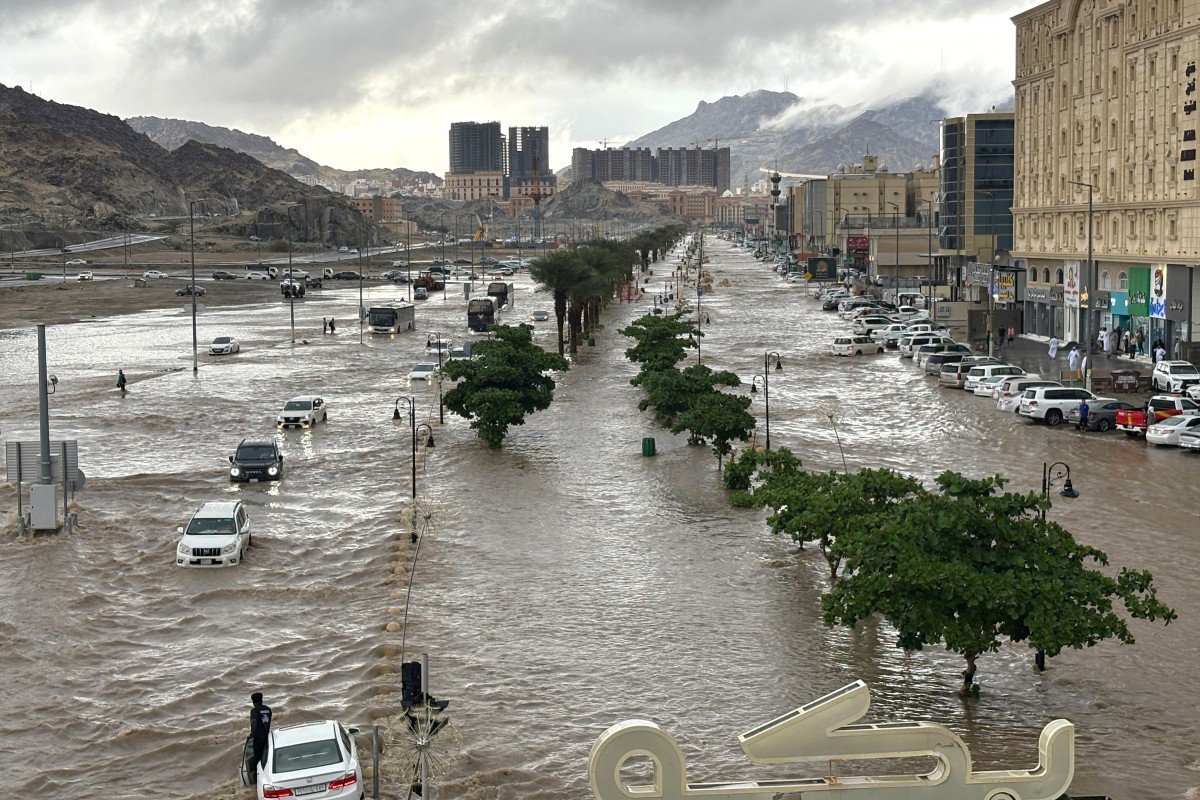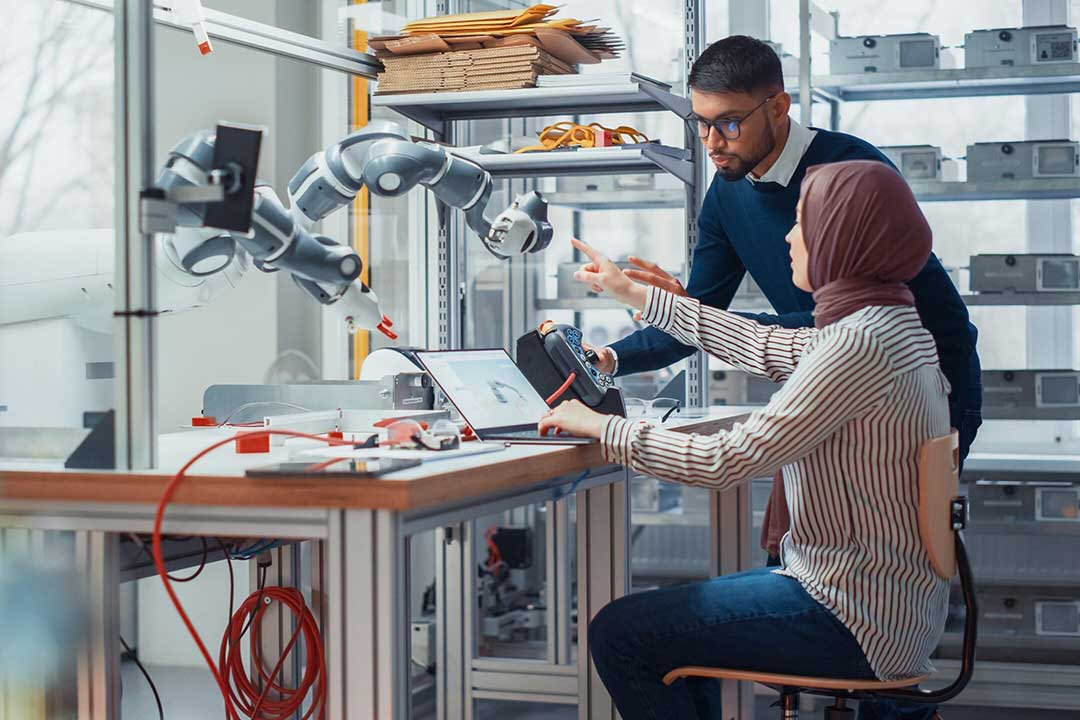RIYADH: Riyadh’s hosting of the World Economic Forum this week is a signal of the global business community’s growing interest in Saudi Arabia’s Vision 2030 reform agenda, Luigi Di Maio, the EU special representative for the Gulf region, has said.
WEF’s special meeting on global collaboration, growth and energy for development took place in the Saudi capital on April 28-29 and was attended by 1,000 government, business and civil society leaders.
Di Maio, who is approaching his first anniversary in his role as EU special representative for the Gulf region, believes the choice of Riyadh as the summit venue reflects changing global perceptions of the Kingdom.
“First of all, the fact that the World Economic Forum, for the first time, is in Riyadh, testifies to the interest of the business community at the world level about the Vision 2030 program,” Di Maio told Arab News on Tuesday.
“The ambitions, especially economic ambitions, of Saudi Arabia are totally changing perceptions of the Kingdom around the world. There is a business community that is more and more interested in these ambitions, in this vision, and in a new generation of dreamers in this country.”
In a wide-ranging interview, which touched on EU-Gulf cooperation on Gaza, new visa rules for citizens of the Gulf Cooperation Council area, and the establishment of a European Chamber of Commerce in Riyadh, Di Maio lauded recent strides in bilateral relations.
“The WEF was an important opportunity to have real and practical solutions for both sides,” he said. “For instance, His Highness, Saudi Arabia’s Minister of Energy Abdulaziz bin Salman, had a bilateral meeting with EU Commissioner for Energy (Kadri Simson).
“And after this meeting, they published a joint statement saying that they discussed and they concluded the discussion about the idea, in a few months, to sign an MoU about energy partnership, energy collaboration.

WEF’s special meeting on global collaboration, growth and energy for development took place in the Saudi capital on April 28-29. (X: EUSR_Gulf)
“And this testifies, again, how much the World Economic Forum here in Riyadh was even a concrete and pragmatic solution, in order to have bilaterals resulting in MoUs, agreements and new partnerships between Saudi Arabia and the rest of the world.”
During his tenure as special representative, Di Maio said, the bilateral alignment between the EU and Saudi Arabia has grown even stronger, with a particular focus on common security interests, particularly in the wake of the Oct. 7 Hamas-led attack on Israel that sparked the ongoing war in Gaza.
“There is a strong alignment between European Union member states and European institutions and Saudi Arabia, but I would say even the GCC countries about the two-state solution for the Middle East peace process,” said Di Maio.
“But I would say that in particular, after Oct. 7, the awareness from our side of how much the GCC countries are strategic partners, not just for the contingencies, not just for what is happening now, but for the next decades is even more.
“This awareness is increasing a lot, not just at the member states level, but is growing around the world.”
This is due in part to a growing recognition of the Kingdom’s diplomatic and economic influence as a regional and global player, Di Maio said.
“Saudi Arabia is becoming more and more the point of reference because now it is implementing its vision for the region that is not just an economic ambition, but is a new policy and new initiatives in order to de-escalate, to make the region in peace and wind down on tensions like the tension that we are experiencing now.
“The partnership and the strategic partnership between the EU and GCC countries, in particular with countries like Saudi Arabia, is vital.
“For instance, last Monday in Luxembourg, we had the high-level forum of the ministers of foreign affairs between the ministers of the EU and Saudi ministers. Even Saudi Foreign Minister Prince Faisal bin Farhan was in Luxembourg.
“And we discussed several topics in an informal discussion, a very frank discussion, where we understood more and more how much there is a common ground in order to build peace and stability for both regions, keeping in mind that Saudi Arabia’s security is our security, and, if I may, our security is Saudi Arabia’s security.”
In particular, Di Maio said, cooperation on the Gaza crisis has brought the EU and the GCC closer than before, with joint work on ceasefire negotiations, humanitarian aid access, and the ambition to establish an independent Palestinian state.
“The situation in Gaza is not just about how to politically solve this dramatic issue, but even how to work together about humanitarian aid access,” said Di Maio.
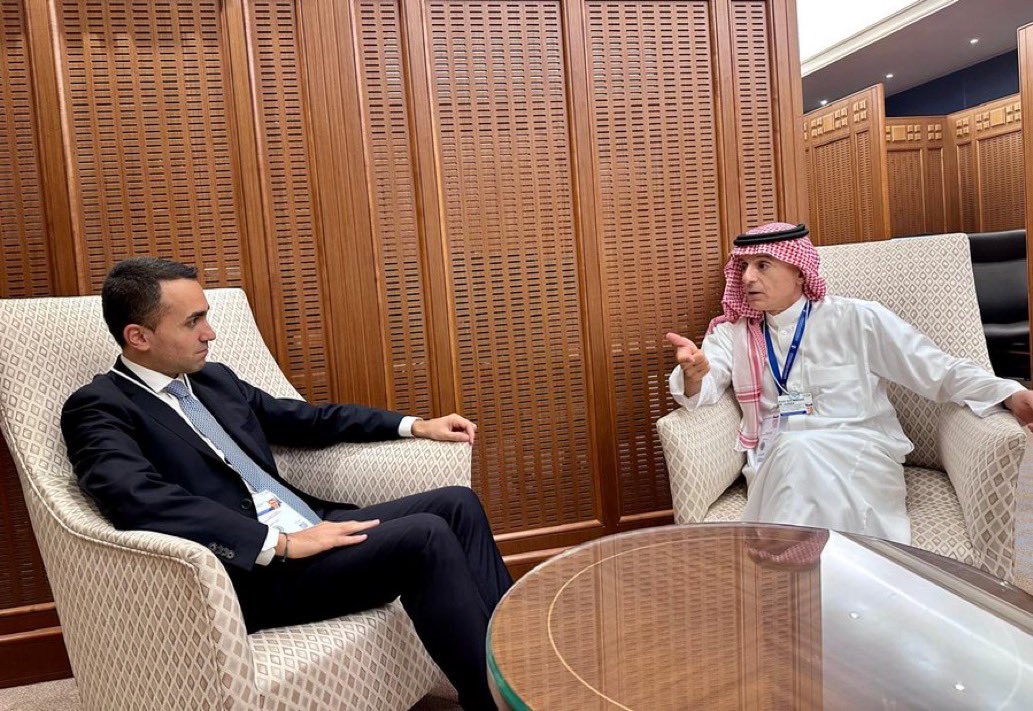
Luigi Di Maio with Saudi minister Adel Al-Jubeir. (X: EUSR_Gulf)
“We have to do more and more about how to allow the entrance of trucks in Gaza and how to deliver humanitarian aid to the people there. And we are working a lot with Saudi Arabia and others in the GCC, like the UAE, for the corridor between Cyprus and Gaza, and Qatar for the negotiations.”
“We are a team. At the beginning of this conflict, I was concerned about the situation, even, of our relations, the EU-GCC. But I’m experiencing that facing, together, this dramatic issue, we are even closer than before.”
He added: “My perception is that we have to be optimists. We have to work hard on the ceasefire using all the leverage at the world level in order to bring closer the two sides in order to have this ceasefire.
“I think that, again, the countries of the region, like Saudi Arabia, but even countries like Jordan, Egypt, Qatar, the UAE, they are protagonists of this process.
“And only with the leadership from the region we will be able to have a sustainable ceasefire, because the Saudis are the only ones that are guarantors of a ceasefire about Gaza on their side, because they are very well, they know very well the dynamics of the region and how to avoid a new Oct. 7 and the new conflict in Gaza.”
Di Maio used his interview with Arab News to announce the forthcoming inauguration of a new European Chamber of Commerce in Riyadh — the first in the GCC area — that will bring together Saudi and European firms to enhance trade and cooperation.
“I am very happy to announce here during this interview that next week, on May 8, we will inaugurate here in Riyadh the first ever European Chamber of Commerce, the first ever in the Gulf of the EU,” he said.
“We’ve worked very hard with (Saudi Arabia’s) Ministry of Investment, the Ministry of Trade. The EU delegation in Riyadh did a great job. And now we are going to inaugurate this chamber.
“That is in order to bring closer our companies, Saudi companies and European companies, in order to take on both sides the new opportunities of the Vision program, but even of our new European Green Deal, Next Generation EU, and others.
“And there will be a very articulated board with several companies from Europe, the most important, among the most important ones.”
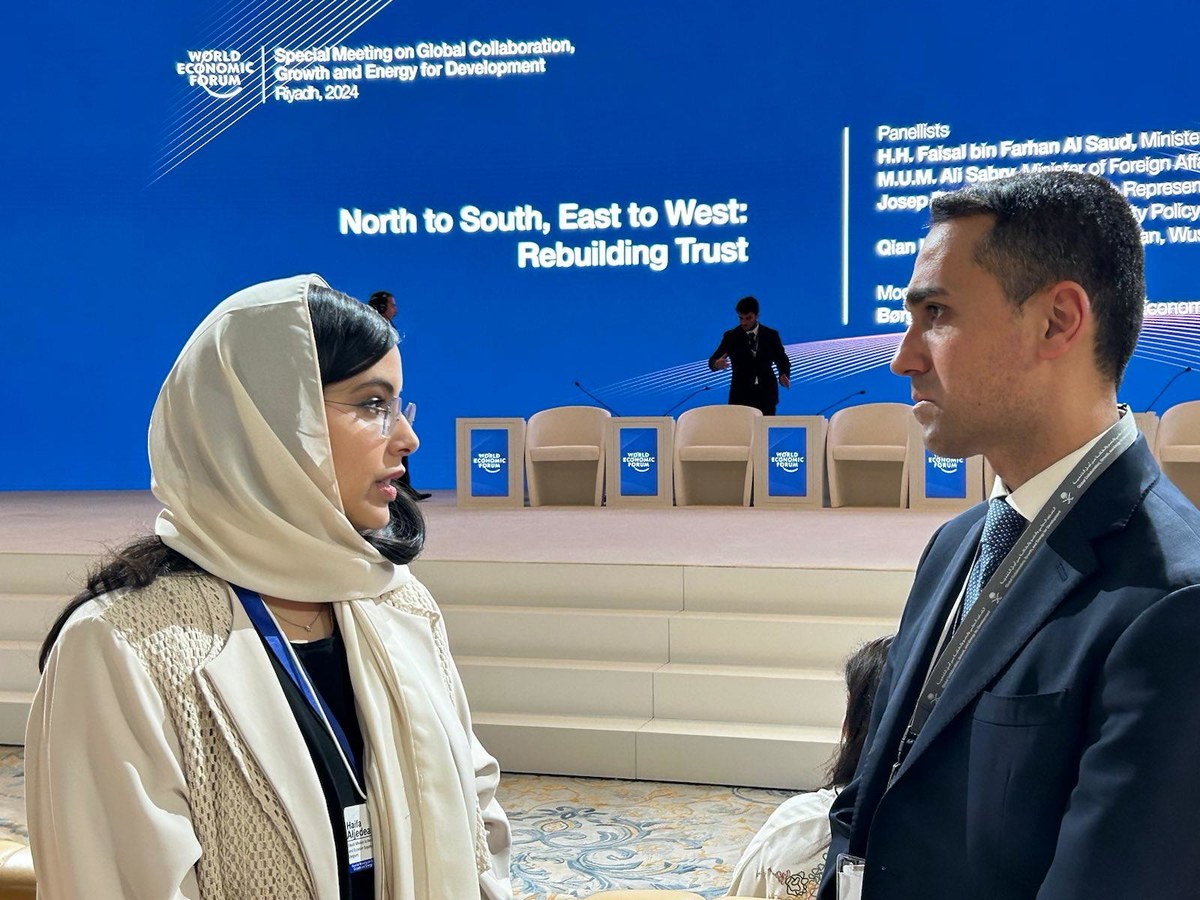
Di Maio believes the choice of Riyadh as the WEF summit venue reflects changing global perceptions of the Kingdom. (X: EUSR_Gulf)
Di Maio also highlighted the recent announcement of a new five-year multi-entry visa for Saudi, Bahraini and Omani citizens entering the EU.
“I’m very happy to announce that last Monday (April 23), the European Commission approved the five years visa cascade,” he said. “That means that when a Saudi, for instance, citizen will ask for a new visa, will apply for a visa, the validity of this visa for multiple entries will be of five years, and not just one year.
“And it will be for Saudi people, for Bahraini people, and for Omani people. Qataris and Kuwaitis, they already had. Now all the GCC countries are aligned for five years. This is good news for the future.
“But we have a period of time where your citizens, your students, your entrepreneurs, your researchers, your tourists, can come to Europe without much bureaucracy.”
Di Maio also took the opportunity to highlight a new collaboration between the EU and the GCC supporting young diplomats. “In mid-May this year, we will have the first ever young diplomats program,” he said.
“That is a program where young diplomats from the GCC will come to Bruges in Belgium and they will have joint training and joint simulations with our young diplomats from the EU.
“In Bruges, there is the Diplomatic Academy of the EU. It is a new project in order to train European diplomats. And we will have a first ever project between the EU and GCC where your young diplomats will be trained and will be in simulations with our young diplomats.
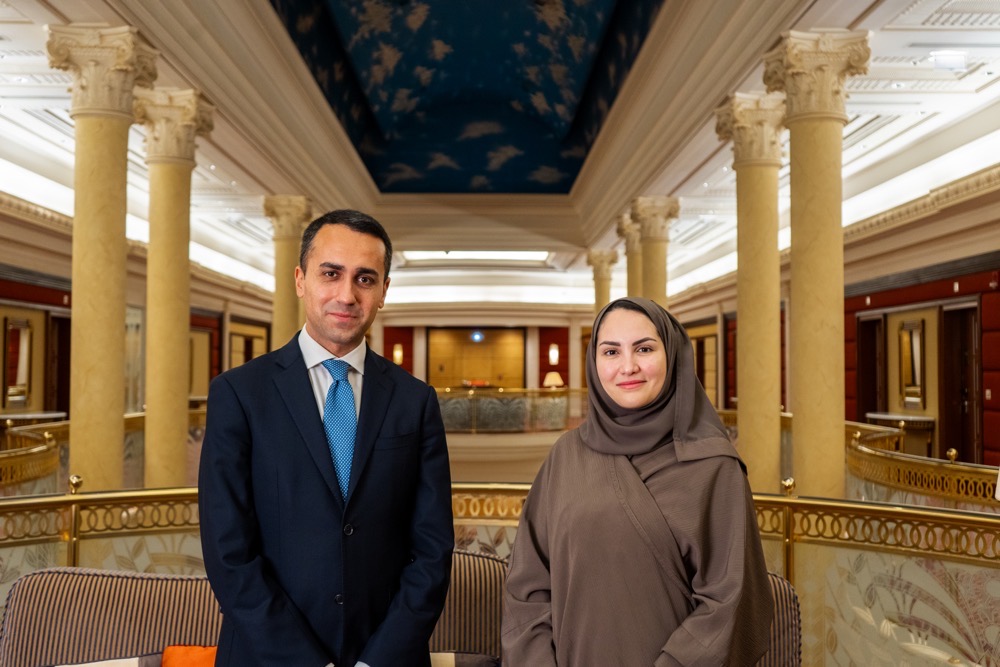
Di Maio with Arab News Deputy Editor-in-Chief Noor Nugali.
“It will be very important to explain better how it works, the complicated machine of the EU, but in particular, this is an opportunity to bring closer our diplomats, our youths.
“And I hope that these kinds of projects, like for the diplomats, will be opportunities for students as well, for young workers as well. We will work on this kind of people-to-people interactions because they are crucial in order to bring our societies closer.
“And, if I may, as we bring our people closer, there will be less Islamophobia, less hate. And this is very important for our societies.”










